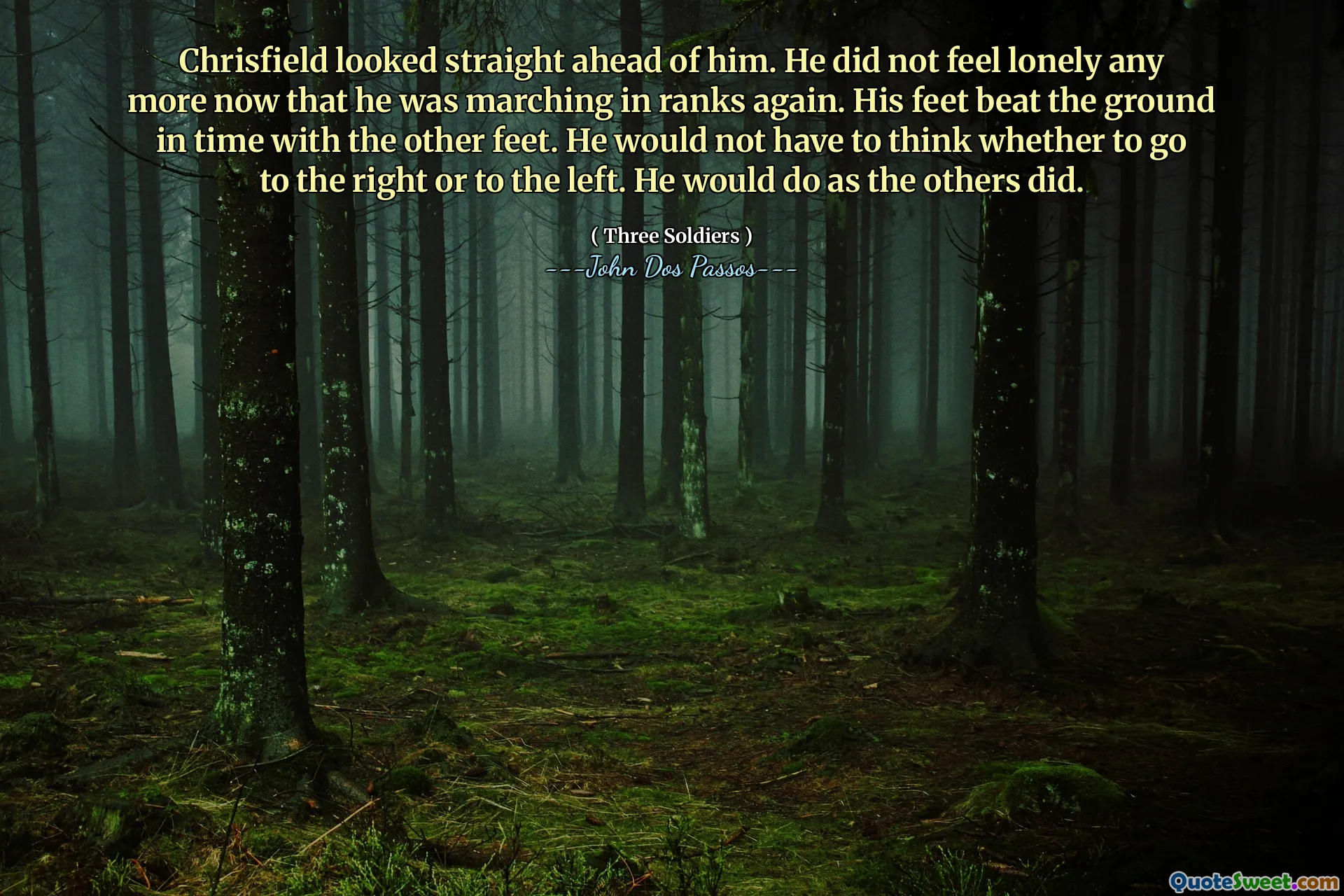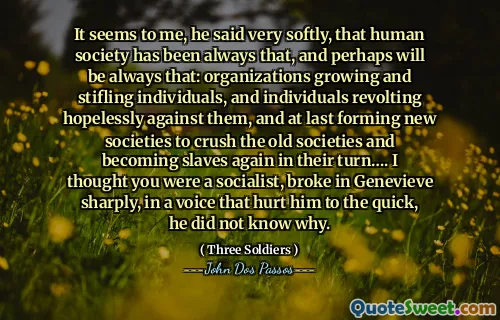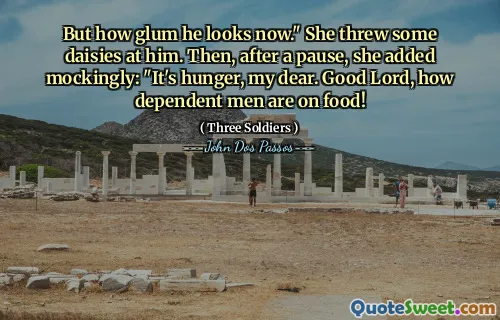
Chrisfield looked straight ahead of him. He did not feel lonely any more now that he was marching in ranks again. His feet beat the ground in time with the other feet. He would not have to think whether to go to the right or to the left. He would do as the others did.
Chrisfield found comfort in the camaraderie of his fellow soldiers as they marched in unison. The repetitive rhythm of their footsteps brought him a sense of belonging, dispelling his previous feelings of loneliness. In this collective movement, he felt a relief from the burden of making decisions, embracing the simplicity of following the group's lead.
This experience allowed Chrisfield to surrender himself to the group dynamics, where individual thoughts and choices were overshadowed by the shared purpose and discipline of military life. The act of marching together represented a return to connection and reliability amidst the chaos of war.









